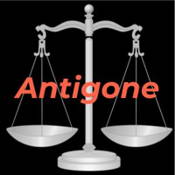
Overview
Synopsis
French dramatist Jean Anouilh’s Antigone is a modern retelling of the ancient Greek play by Sophocles. The play centers around the young, headstrong Antigone’s defiance of her uncle Creon, the king of Thebes. When Antigone’s brothers Eteocles and Polynices are killed fighting each other in an attempt to take over as king, Creon takes the throne and dictates that only Eteocles will receive a proper burial. Because he led the attack against Thebes, Polynices’ body will lie on the battlefield. Bound by familial duty and her conviction that Creon’s order is invalid, the defiant Antigone buries Polynices and boldly faces the consequences alone. Anouilh’s adaptation preserves the mythology of Sophocles’ text, but makes the characters feel and sound human to a contemporary audience. The play is less political than Sophocles’, focusing more on the sentiment of the relationships between Antigone and her family. The English translation by Lewis Galantiere has easily accessible language and works well for both performance and classroom use at the high school level.
Show Information
Context
Plot
Characters
| Name | Part Size | Gender | Vocal Part |
|---|---|---|---|
|
Lead |
Female |
|
|
|
Lead |
Male |
|
|
|
Supporting |
Female |
|
|
|
Supporting |
Male |
|
|
|
Supporting |
Male |
|
|
|
Featured |
Male |
|
|
|
Featured |
Male |
|
|
|
Featured |
Male |
|
|
|
Featured |
Male |
|
|
|
Featured |
Female |
|
|
|
Ensemble |
Either Gender |
|
|
|
Ensemble |
Female |
|
Songs
A song with an asterisk (*) before the title indicates a dance number; a character listed in a song with an asterisk (*) by the character's name indicates that the character exclusively serves as a dancer in this song, which is sung by other characters.
Monologues
Scenes
Key Terms
An adaptation is a reworking of a story from one medium or cultural context into another, such as turning a novel into a play or updating a classic play’s setting. Adaptations often reinterpret themes, characters, and style for new audiences. They can range from faithful recreations to bold reimaginings.
A performance technique where an actor speaks directly to the audience, breaking the fourth wall for dramatic or comedic effect.
A group in Ancient Greek theatre that commented on the action, represented the public, and provided narrative insight.
A body of traditional stories involving gods, heroes, and creation myths. Mythology provides inspiration for characters and narratives in global theatre traditions.
A philosophical concept of universal moral principles, sometimes invoked in plays about justice or moral dilemmas.
Videos
Sorry! We do not currently have videos for this guide.
Quizzes
Themes, Symbols & Motifs
Sorry! We do not currently have learning modules for this guide.
Quote Analysis
Sorry! We do not currently have learning modules for this guide.
